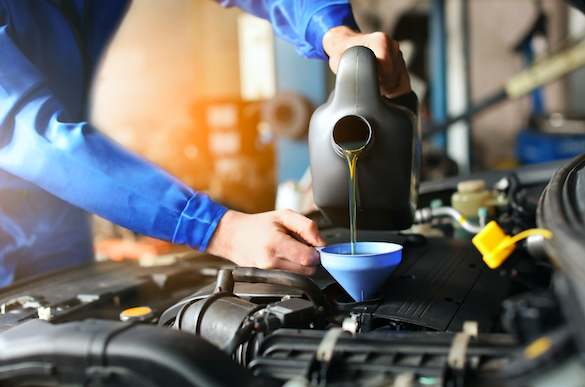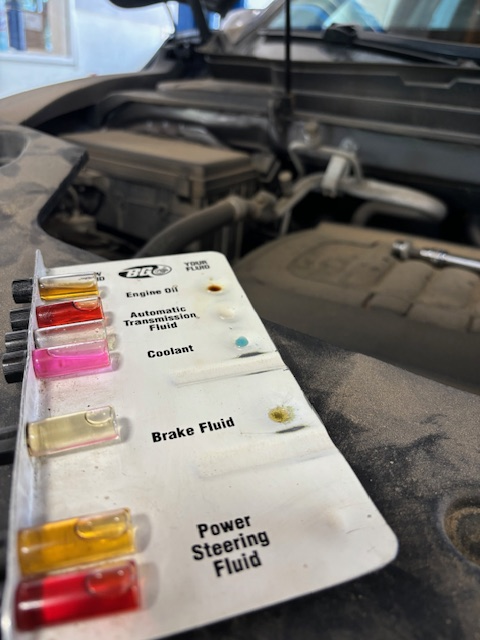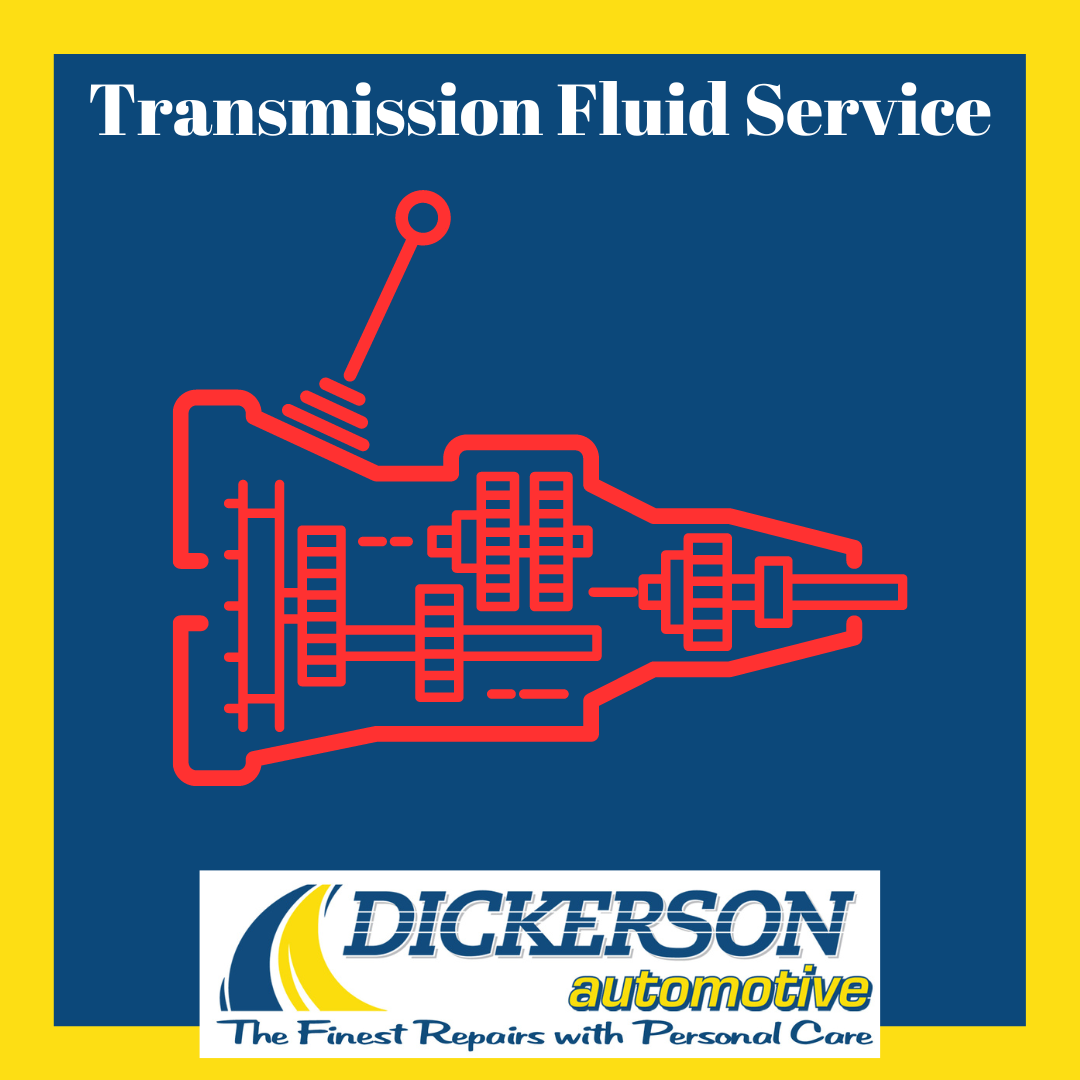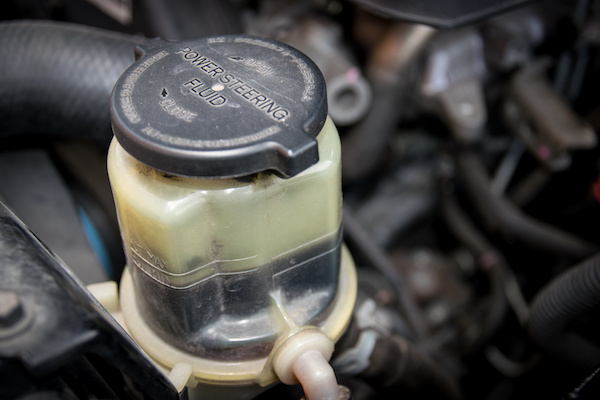Posted on 1/31/2024

VEHICLE CARE AND MAINTENANCE Which side are you on: Team Proactive Maintenance, committed to regular care and inspections, or Team Wait-and-See? At Dickerson Automotive, we firmly stand with Team Maintenance. While some may suggest we sell items not currently broken, our belief is that assisting you in maintaining your vehicle's peak condition will ultimately save you money. We've assembled a list of pros and cons to enable you to make an informed decision. Pros of Regular Vehicle Maintenance:Preventive Measures: Regular maintenance helps identify and address potential issues before they become major problems. Extended Lifespan: Routine servicing can prolong the life of your vehicle by keeping all components in optimal condition. Enhanced Safety: Well-maintained vehicles are safer to drive, reducing the risk of accidents due to mechanical failures. Improved Fuel Efficie ... read more
Posted on 7/6/2023

Fluid Exchanges – What You Need to Know When your repair shop recommends a fluid exchange, what exactly does that mean? Most people are familiar with oil changes, but your vehicle can have up to seven other fluids that need regular care—transmission, coolant, brake, power steering, transfer case, front differential, and rear differential. Keeping these fluids clean and fresh ensures all the moving parts in your vehicle stay properly lubricated and performing their best for as long as possible. At Dickerson Automotive, we recommend fluid exchanges every 30,000 to 50,000 miles to maintain peak performance. While some manufacturers claim certain fluids are “lifetime,” their goal is to sell cars—not necessarily keep them running for decades. During every oil change, our technicians take fluid samples to check their condition and help you stay ahead of costly repairs. Call us today to schedule your fluid check ... read more
Posted on 5/19/2023

What Is A Transmission Fluid Filter Service? Transmissions are easily one of the most overlooked services that we do. Transmissions and the fluid inside them is just as important as engine oil, after all transmission fluid is just like oil. Each transmission is different and also has different service intervals. Transmission services are generally recommended between 30,000 to 50,000 miles. Dickerson Automotive recommends servicing transmission fluid every 30,000 miles to get the maximum life out of the transmission. There are multiple ways to service a transmission from a fluid exchange, drain and refill, or filter and fluid service. Today were going to talk about how we service transmissions by changing the filter and the fluid inside the transmission pan. Why Is Transmission Fluid So Important? Transmission fluid works just like engine oil does except its for the internal parts of the transmission. Automatic transmission fluid contains many cleaners as well as lubricants. The det ... read more
Posted on 2/27/2023

Vehicle preventive maintenance refers to the regular and proactive maintenance of a vehicle to ensure that it is running at its peak performance and remains in good condition. This involves inspections, cleaning, lubrication, and replacement of parts to keep the vehicle operating smoothly and safely. The goal of preventive maintenance is to prevent costly repairs and breakdowns, maximize fuel efficiency, and extend the lifespan of the car. What Does Preventive Maintenance Mean? Regular vehicle preventive maintenance includes a variety of tasks, such as changing the oil and oil filter, checking and topping off fluids, replacing air and fuel filters, checking and replacing spark plugs, inspecting the brakes and tires, and checking the battery and electrical system. It also involves periodic inspections of the suspension and steering components, belts and hoses, and other critical parts of the vehicle. How Does It Help? Preventive maintenance can help identify potential problems befor ... read more
Posted on 12/23/2022

If your car has a hydraulic power steering system, it has power steering fluid. The power steering fluid lubricates all the parts in the power steering system ensuring smooth and optimal movement as well as minimal wear and tear. Power steering fluid changes are not typically included in the regular maintenance checklist. So, do you need to replace the power steering fluid? Read on to find out. Steering Issues Power steering is meant to improve your steering. If you encounter issues with your steering, it signifies a problem with the steering and possibly, the power steering fluid. You should begin by adding the power steering fluid as low levels may cause problems in the steering system. If that does not suffice, try replacing the liquid as it may be contaminated. Contaminations will affect steering and damage parts of the power steering system. Leaks It is essential to check the power steering levels every month. Your power steering warning light is a great indication to check ... read more